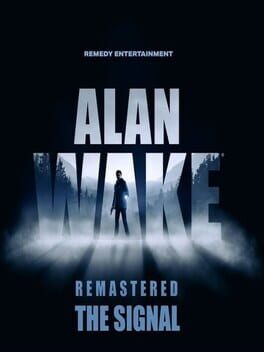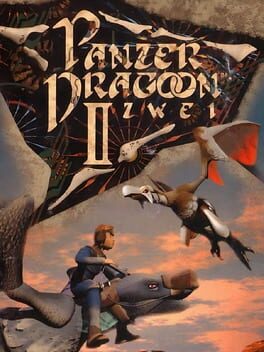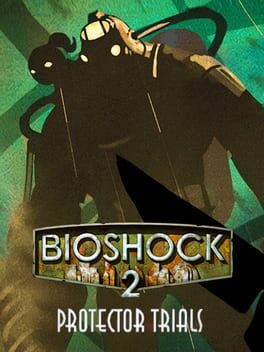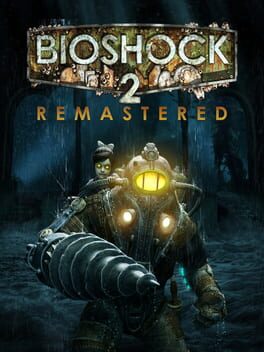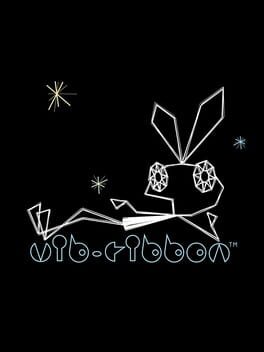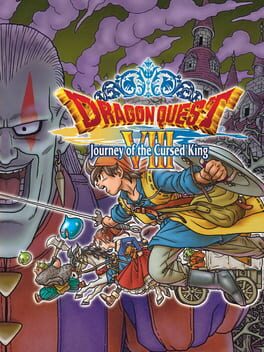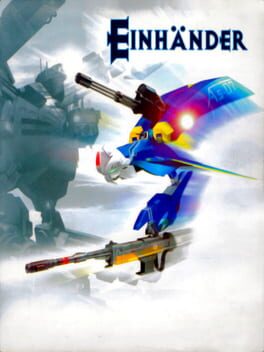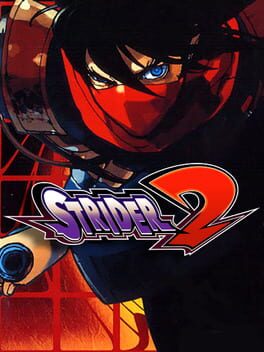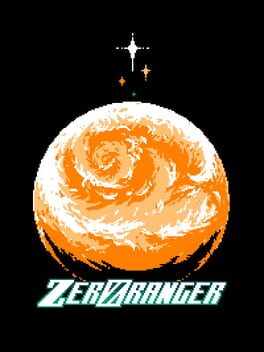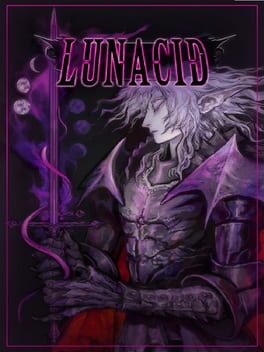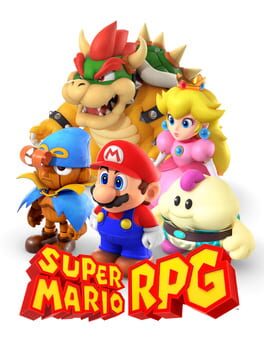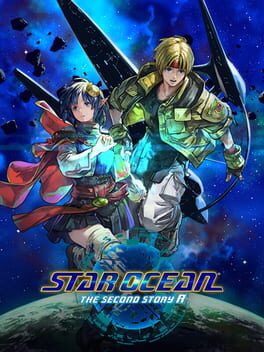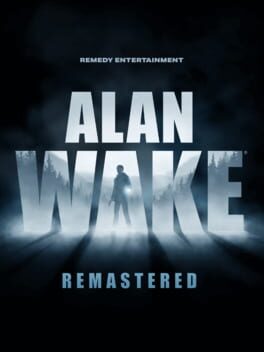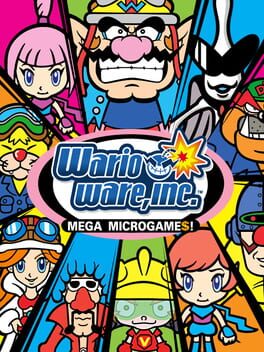This is handily the worst thing I've played all year. It's just all of Alan Wake's worst design tendencies condensed down into a maze of formless slop. It feels like every encounter is worse than the last, and considering the game it's attached to was already pushing the boundaries of tasteful combat design, that's quite an admonishment.
Evokes an atmosphere as powerful as Panzer Dragoon Orta’s, but with the added benefit of the 32-bit aesthetic adding an extra layer of alienation into the mix. The 360 degree rail shooting is just as exhilarating as ever, with tons of enemy variety that makes you mix up your shot types and alternate paths through the stages to make deaths or repeat playthroughs not feel like a chore.
So much of the fun of Bioshock 2’s combat comes from finding interesting angles from which to approach an encounter, and that’s just lacking here entirely. I didn’t find the defense segments in the base game to be all that annoying because you had the capacity to lay traps with the inventory you’ve been building up, and they were also spread out throughout levels. However, doing so many in quick succession and with no control of your loadout really takes the fun out of it. I do like that the preselected loadouts require you to engage with absolutely every corner of the game’s sandbox, but these missions are also so easy (lacking a hard mode completely) that I don’t really find myself doing the kind of on the fly problem solving that defines the main appeal of the game for me. The sandbox is still really solid, and there’s a handful of trials here that I got a kick out of, particularly the one where you can’t earn money, but overall this just feels like they’re trying to make a different genre of shooter out of the bones of an imsim and it just doesn’t work for me.
1999
I've been getting really into Masaya Matsuura's work with Psy・S recently and it has such an insanely timeless quality that I've quickly become obsessed with, and it's so fucking interesting how easily that quality transfers across the lines of artistic medium into Vib-Ribbon. I really wish that these kind of cross medium discoveries could happen more often, because it's such a unique feeling.
Dragon Quest VIII feels like a conscious effort to strip the series back to something much more straightforward after the thoroughly maximalist approach that DQVII took. Gone is the job system or any of the sort of narrative or structural trickery that I've come to associate with the series (outside of a slight twist post Dark Ruins). There is now a far greater focus on fleshing out the characters and world, while still delivering on the chill episodic adventures that I expect.
This is one of the best parties in a Dragon Quest game despite their characterization being pretty frontloaded, and all the episodic bits do a great job fleshing out individual locations and side characters in a way that really makes you feel attached to the world. The QoL changes in the 3DS version are extremely welcome too, making this feel like much less of a slog than the PS2 release, and letting you bring along some of the most memorable side characters from that version for the final stretch of the game. I also love the addition of Cameron's Codex, which incentivizes you to become even more intimately acquainted with the world as you look for specific items to photograph.
My only real problem with the game is that I find this implementation of the overworld to just be kind of awkward. It's no doubt impressive to have these big open areas on a PS2, and doubly so to have them on a 3DS with enemies dotting the landscape. That being said, the vast majority of the overworld is just bland treescapes, and until you get the sabercat around the halfway mark it is just painfully slow to scrape the map looking for treasures and rare monsters. It just feels like a strange halfstep between a traditional JRPG overworld and a modern interpretation of an open world, and there might be other games that take this type of setup and really make it work, but it just falls flat for me here.
Despite that gripe I still really love this game, and it's maybe the most "Dragon Quest" Dragon Quest game as it defined the series' aesthetic as it shifted to 3D. It looms large in my mind whenever I think about the franchise even though it's far from my favorite, and I think that just goes to show how special Dragon Quest is to me.
This is one of the best parties in a Dragon Quest game despite their characterization being pretty frontloaded, and all the episodic bits do a great job fleshing out individual locations and side characters in a way that really makes you feel attached to the world. The QoL changes in the 3DS version are extremely welcome too, making this feel like much less of a slog than the PS2 release, and letting you bring along some of the most memorable side characters from that version for the final stretch of the game. I also love the addition of Cameron's Codex, which incentivizes you to become even more intimately acquainted with the world as you look for specific items to photograph.
My only real problem with the game is that I find this implementation of the overworld to just be kind of awkward. It's no doubt impressive to have these big open areas on a PS2, and doubly so to have them on a 3DS with enemies dotting the landscape. That being said, the vast majority of the overworld is just bland treescapes, and until you get the sabercat around the halfway mark it is just painfully slow to scrape the map looking for treasures and rare monsters. It just feels like a strange halfstep between a traditional JRPG overworld and a modern interpretation of an open world, and there might be other games that take this type of setup and really make it work, but it just falls flat for me here.
Despite that gripe I still really love this game, and it's maybe the most "Dragon Quest" Dragon Quest game as it defined the series' aesthetic as it shifted to 3D. It looms large in my mind whenever I think about the franchise even though it's far from my favorite, and I think that just goes to show how special Dragon Quest is to me.
1997
My quest to get into STGs continues with a game that I've long been interested in from bumping the OST throughout late night college study sessions. The first stage of this immediately drew me in just from the environment design alone. Add onto that the mechanics surrounding your secondary weapon, and the fact that bosses have tons of locational damage opportunities that radically change the course of the fight and I thought I was in for a really great time. Unfortunately, after beating my head against it for a while I just find the lack of on-the-spot respawning to be far too punitive for me to properly learn the game. I'm not sure how much this is common genre convention I just don't jive with, and how much of it is this game in particular, but nevertheless I was filtered after being stuck on stage 4 for far too long. Still gonna rock this OST forever though.
1999
2018
I’m trying extremely hard to get STG-pilled lately, and I think as someone who is still largely unfamiliar with and bad at the genre the way ZeroRanger eases you in through slowly unlocking more continues and weapons is really great. The art direction and meta narrative elements helped spur me along even when the going got tough, and when I finally beat 1-4 I was feeling incredible. Once I started the next hit though I quickly found the friction to be a little too much for me to handle, I never quite felt like the weapons loadout I brought to a stage was optimal for every tough bit that awaited me, which I’m sure is an intentional design decision meant to force you outside of your comfort zone, but I could not hang in the end.
2022
The first few hours of Lunacid are magical. Slowly and deliberately exploring the extremely atmospheric environments looking for secrets and trying not to make a small mistake that sets you back 30 minutes. The color palette and soundtrack provide the perfect mood for this pace of play, it's almost comfy in its oppressiveness. But very quickly the balance swings way too far into the player's favor and you become a death machine, moving so quickly and hitting so hard that it's almost as if you're playing a retro shooter while your enemies are playing a turn based RPG. This is such a stark contrast to the pace of play established at the beginning of the game it almost feels like you're playing an entirely different genre. I still had a great time pulling at all the little threads of this esoteric world, finding new connections between zones and completing a mental map of those I had conquered, but I never came close to recapturing those opening hours.
2023
The number one thing that Super Mario RPG accomplishes is to make a JRPG with literally no downtime. Not only is the pacing of the plot and dungeons lightning quick, but the battles are also extremely fast even without factoring in the action commands constantly forcing you to stay engaged. This is also not a game that ever rests on its laurels, it constantly throws new mechanics and mini games at you the second you might be feeling the least bit bored. If only all those diversions were actually fun to engage with, but alas. Also Mallow is the only actually fleshed out character in the game, which is wild considering how overshadowed he is by Geno in the greater conversation surrounding the game, but Mallow fucking rules.
When Like a Dragon Gaiden was announced I was a bit concerned that it would undercut the passing of the torch 1-2 punch that was LAD 6 and 7. Kiryu's character was sent off in such a final fashion, and the yakuza as a whole were set to fade into history, and yet here is a game that puts you back into Kiryu's shoes for one more adventure, with seemingly its only goal being to set up yet another game with Kiryu in it. I was surprised then at how utterly essential of a compliment this is to sending off both Kiryu and the yakuza, providing context and acknowledging truths about each party that are deeply necessary to understanding the evolving pathos of the franchise. This game is more than anything about what it means to move on from something while acknowledging the impact you've made, both good and bad. For Kiryu and the yakuza at large they have always kept the consequences of their actions at arms length, comfortably living as though their hands are clean, but Gaiden makes them directly confront those uncomfortable truths, which in a way seems metatextual for the direction the franchise is taking as well. The ending is a gut-wrenching reward to those of us who have followed Kiryu through his whole journey, but through the tears it forces you to acknowledge the things that we're leaving behind as we enter a new era.
I don’t think I’ve ever come into a game with such middling expectations only to end up with it being one of my absolute favorite games. Star Ocean First Departure R was a real mess of a game, its ambitions were sky high but it flew too close to the sun and ended up being a real let down. The discussion around Star Ocean at large has really made it seem like these games are just kind of a mess like that and it’s a love it or hate it thing, but Star Ocean: The Second Story is a game that not only realizes all those lofty ambitions that First Departure had, but evolves past that to such a degree it’s astounding.
The Second Story is such an insanely systems-heavy game for a JRPG and yet it never feels overwhelming. Everything from the battle mechanics, to the encounter mechanics, to the skills and itemization all comes together in such a harmonious way that allows you to get completely absorbed by the gameplay loop. Often times I’ll stop dead in my tracks between story beats to fiddle around in the menus for like an hour, and that’s not because the game is forcing me to do it, it’s because I wanna see what kind of stupid shit I can do. This is a game that absolutely begs for you to break it over your knee, it wants you to get overleveled, it wants you to get the best equipment in the game by the halfway point, it wants you to plow through a whole dungeon without ever doing an actual encounter, and when you do finally do an encounter for it to end the second your first hit connects. This kind of systems heavy design seems very reminiscent of a CRPG to me rather than a JRPG, but it pulls it off so effortlessly it’s as if these were JRPG conventions all along.
The HD-2D aesthetic is starting to get played out a bit at this point, I still think games like Live A Live look great but when every JRPG remake looks like that it’s a bit tiresome. The Second Story R takes that HD-2D idea and evolves it in what feels like the leap from the SNES to the PS1. It legitimately looks as if every area in this game is a pre rendered background brought to life, the 3D level geometry also allows for the lighting to pop so much more than in any HD-2D game, and the ability to move the camera around the environments in a way not possible in the original leads to some beautiful moments.
I love all the characters too, yeah they are all anime tropes to a T but I think the private actions allow them to all punch well above their weight. There were quite a few PAs here that legitimately made me laugh in a way that I never thought this sort of thing would, especially compared to Tales Of skits that constantly try to make you laugh and fail miserably. I think if I had one real complaint about the writing it’s that the endings I ended up with felt a little limp, which is definitely a consequence of there being so many possible endings, but not getting a satisfying conclusion to some of the character relationships is definitely making me want to give it another go.
All in all just a truly astounding game, I think if I played the original when it came out this would have been my entire personality for a decade plus, but playing it now it’s still something I feel like I’m gonna carry with me for a long time.
The Second Story is such an insanely systems-heavy game for a JRPG and yet it never feels overwhelming. Everything from the battle mechanics, to the encounter mechanics, to the skills and itemization all comes together in such a harmonious way that allows you to get completely absorbed by the gameplay loop. Often times I’ll stop dead in my tracks between story beats to fiddle around in the menus for like an hour, and that’s not because the game is forcing me to do it, it’s because I wanna see what kind of stupid shit I can do. This is a game that absolutely begs for you to break it over your knee, it wants you to get overleveled, it wants you to get the best equipment in the game by the halfway point, it wants you to plow through a whole dungeon without ever doing an actual encounter, and when you do finally do an encounter for it to end the second your first hit connects. This kind of systems heavy design seems very reminiscent of a CRPG to me rather than a JRPG, but it pulls it off so effortlessly it’s as if these were JRPG conventions all along.
The HD-2D aesthetic is starting to get played out a bit at this point, I still think games like Live A Live look great but when every JRPG remake looks like that it’s a bit tiresome. The Second Story R takes that HD-2D idea and evolves it in what feels like the leap from the SNES to the PS1. It legitimately looks as if every area in this game is a pre rendered background brought to life, the 3D level geometry also allows for the lighting to pop so much more than in any HD-2D game, and the ability to move the camera around the environments in a way not possible in the original leads to some beautiful moments.
I love all the characters too, yeah they are all anime tropes to a T but I think the private actions allow them to all punch well above their weight. There were quite a few PAs here that legitimately made me laugh in a way that I never thought this sort of thing would, especially compared to Tales Of skits that constantly try to make you laugh and fail miserably. I think if I had one real complaint about the writing it’s that the endings I ended up with felt a little limp, which is definitely a consequence of there being so many possible endings, but not getting a satisfying conclusion to some of the character relationships is definitely making me want to give it another go.
All in all just a truly astounding game, I think if I played the original when it came out this would have been my entire personality for a decade plus, but playing it now it’s still something I feel like I’m gonna carry with me for a long time.
2021
I adore how Alan Wake is actually one of the most bland New York Times Best Seller type writers imaginable and how that's reflected throughout the whole game while everyone takes his shit deadly seriously. I think my opinion of the game overall is held up by that aspect of the writing and the fact that there is more foggy-woods-at-night per square inch in this game than in any other game I can think of, and that's one of the best settings imaginable. The core gameplay mechanics of managing a mob of enemies with a flashlight and limited resources are really interesting and enjoyable for the first half of the game, but once they honestly just run out of ideas for compelling encounters in the back half and there are so many encounters between story beats that it just becomes a slog.
